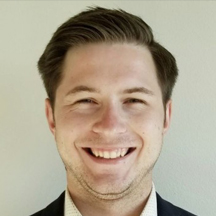New to Public Health-Cohort 3: Session 10-Leadership and Policy Development
Overview
The New to Public Health Residency Program is an innovative development program designed to build confidence and competency for professionals who are new to public health.
The program is built upon the Foundational Public Health Services Model and develops enhanced knowledge and skills within the foundational areas and capabilities that are essential to public health practice.
The residency program includes an evidence-based practice project, peer networking, mentoring, facilitated reflection and journaling, simulation, and case studies to support the new resident as they transition to practice; while inspiring collaborative, interdisciplinary relationships to promote and protect health at a population level.
Statement of Need and Purpose
The residency program is designed to provide new public health professionals the foundational capabilities that are essential to public health practice. Overarching residency curriculum focuses on leadership, professional development, role-specific formation and competency. A residency program bridges the workforce by integrating the knowledge of experienced public health professionals and the fresh ideas of new staff to positively affect population health.
Integration of public health professionals from across jurisdictions allows the new public health professional to understand how diversity in the workforce strengthens essential services across city and county lines, and allows for enhanced networking and future collaboration.
Residency programs supplement state and local orientation programs and build upon department-specific policy, procedures, and tasks, to allow the resident to see a fuller picture of the field of public health.
This contemporary program utilizes a comprehensive practice model that supplements existing knowledge of staff and supports the synthesis of new ideas. The program promotes standardized tools for the participant to customize based on their individual practice.
Target Audience
This residency program is designed to meet the needs of nurses, social workers, sanitarians, health educators, and other public health professionals that are new to their roles.
Elements of Competence
This continuing education (CE) activity is designed to improve learner competence, and focuses on the American Board of Medical Specialties’ areas of interpersonal communication skills, professionalism and systems-based practice, the Institute of Medicine area of employing evidence-based practice, applying quality improvement, and utilizing information, and the Interprofessional and Nursing areas of values/ethics, roles/responsibilities and interprofessional communication.
Global Learning Objectives
By the end of the residency program, the new public health professional as a member of the interprofessional healthcare team will:
- Apply learned concepts from the Foundational Public Health Services’ model to their public health professional practice.
- Increase knowledge, skills, and confidence for competent public health practice.
- Access tools and resources applicable to public health practice.
- Apply health equity and social justice concepts to public health practice.
- Demonstrate enhanced cultural competency knowledge and skills in their individual practice.
- Research, plan, and present a quality improvement or evidence-based practice project within their local health department or community.
Session Learning Objectives
By the end of this session, the new public health professional as a member of the interprofessional healthcare team will:
- Demonstrate ability to lead internal and external stakeholders to consensus, with movement to action, and to serve as the public face of governmental public health in the department's jurisdiction.
- Discuss how to directly engage in health policy development, discussion, and adoption with local, state, and national policymakers, and to define a strategic direction of public health initiatives.
- Articulate how to engage with the appropriate governing entity about the department's public health legal authorities and what new laws and policies might be needed.
- Describe the ability to access and appropriately use legal services in planning, implementing, and enforcing, public health initiatives, including relevant administrative rules and due process
- Explain how public health serves as a primary and expert resource for establishing, maintaining, and developing basic public health policy recommendations that are evidence-based, grounded in law, and legally defendable. This ability includes researching, analyzing, costing out, and articulating the impact of such policies and rules where appropriate, as well as the ability to organize support for these policies and rules and place them before an entity with the legal authority to adopt them.
- Detail how to effectively inform and influence polices being considered by other governmental and non-governmental agencies within your jurisdiction that can improve the physical, environmental, social, and economic conditions affecting health but are beyond the immediate scope or authority of the governmental public health department.
Successful Completion
Residents will view lectures, panel discussions, participate in cased-based and small-group discussions, participation in simulation and skill-based training, and participate in simulation, skill-based training, and gaming activities over a 12 month period of time.
The residency program also includes an evidence-based practice project, peer networking, mentoring, facilitated reflection, journaling to support the new resident as they transition to practice while inspiring collaborative, interdisciplinary relationships to promote and protect health at a population level.
SESSION SECTIONS |
|---|
| Session 10: Pre-Test |
| Public Health Leadership |
| Introduction to Policy Development |
| Health in All Policies |
| Scavenger Hunt |
| Public Health Advocacy |
| Collaborative Decision Making |
| Case Study |
| Public Health Authority |
| Discussion |
| Professional Organizations |
| Professional Certification |
| Reflection |
| Discussion Post Check In |
| Session 10: Post-Test |
| Session 10: Evaluation |
| References |
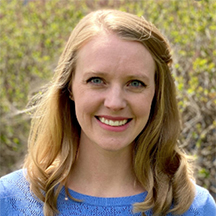 | Julianna ManskeNew to Public Health Residency Program FacilitatorJulianna Manske is the is facilitator and cofounder of the New to Public Health Residency Program and is employed with the University-Wisconsin Madison School of Nursing. Julianna spearheaded the workgroup in 2016 that developed and implemented the Southeastern Wisconsin Public Health Nurse Residency Program. This program, which ran from 2017-2020, served as a foundation to build the New to Public Health Residency Program, which supports public health professionals in their first year of employment at a local, regional, tribal, or state health department. Julianna serves as a co-chair on the Association of Public Health Nurses’ Education and Professional Development subcommittee. Julianna graduated from Concordia University in 2014 with a Master of Science in Nursing Education, and Carroll University in 2009 with a Bachelor of Science in Nursing. Julianna is passionate about workforce development and she is grateful to work with an incredible team developing the New to Public Health Residency Program and collaborating with public health leaders across the country. |
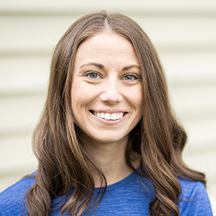 | Hannah HayesNew to Public Health Residency Program Facilitator and Project ManagerHannah Hayes is the New to Public Health project manager, facilitator, and co-developer of the New to Public Health Residency Program. In 2018 Hannah completed her Master of Public Health (MPH) at the University of Wisconsin-Madison. During this time, Hannah partnered with the Southeastern Wisconsin Public Health Nurse Residency Program, where she assisted in the co-development of a toolkit for the dissemination and implementation of the residency program, which served as the foundation for the New to Public Health Residency Program. Hannah is currently employed by the University of Wisconsin-Madison School of Nursing as the Project Manager of the New to Public Health Project. Hannah graduated with her Bachelor of Science in Nursing in 2016. Hannah has experience in family practice & forensics, postpartum, and public health nursing in addition to serving as a public health clinical instructor. Hannah is passionate about social justice, empowering new professionals, and advancing the public health profession. |
| Michael JaebMichael is a Doctor of Philosophy in Nursing student at the University of Wisconsin-Madison School of Nursing. Michael is building a program of research to improve health professional-patient communication to address shame and stigma encountered during health professional-patient interactions. The goal of this research is to develop and bolster trauma-informed communication tools and styles that support health professionals providing caring services for individuals, families, and communities experiencing shame and stigma. Michael serves as the co-chair of the Wisconsin Public Health Association Public Health Nursing section. He previously served on the Wisconsin Nurses Association Public Policy Council, COVID Response Work Plan Committee, and COVID Ethics subcommittee in which he advocated for the protection of the nursing workforce and correction of inequitable responses to public health crises. Michael also served at the Eau Claire City-County Health Department in implementing outreach efforts for WIC, NFP, and community action teams targeting mental health and healthy relationships. He led a food support program for individuals experiencing homelessness and food insecurity. Michael also has experience collaborating with Native American communities and UW-Eau Claire faculty to address poor outcomes related to pressure ulcers in older adults. |
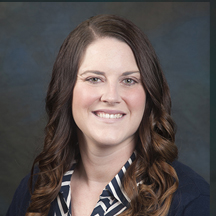 | Mallory BejsterDr. Mallory Bejster is an Assistant Professor in Rush University’s College of Nursing within the Department of Community, Systems and Mental Health Nursing where she teaches public health nursing, health promotion, and health policy courses at the graduateand doctoral level. She has a MSN in nursing education and a DNP in Advanced Public Health Nursing with over 13 years of nursing experience, largely focusing on public/community health and nursing education. Her scholarship interests include youth and young adult health as well as public health nursing education and practice. Along with teaching, Dr. Bejster is involved in several local public health efforts including the Community Health Improvement Plan (CHIP) process at the county level. Additionally, she has been a member of Association of Public Health Nurses since 2016, is the current Public Policy Committee Chair, and is a 2021-2022 Board Member-at-Large. |
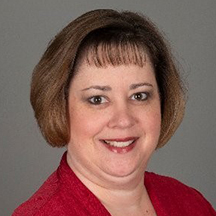 | Jen CooperDr. Jennifer Cooper is an Associate Professor of Nursing at Hood College in Frederick, Maryland, where she teaches in the undergraduate nursing and public health programs. She serves as Immediate Past President of the Association of Public Health Nurses and liaison to the national Million Hearts® initiative. Locally, she leads Hood Million Hearts®, which promotes cardiovascular disease prevention in the community. Her experience in community/public health nursing practice and nursing education and the connection between them provide the foundation for her practice and scholarship work. Throughout her career, Dr. Cooper has focused her teaching, scholarship and service activities around assessing for and meeting the needs of learners and community-based partners by planning, implementing and evaluating evidence-based strategies and programs aimed at chronic disease prevention and management. Dr. Cooper earned her DNP from The George Washington University, MSN from Rush University and BSN from Cedarville University. |
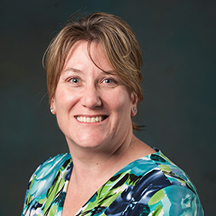 | Kate JohnsonKate Johnson has been a Registered Nurse for over 30 years and is currently the Public Health Nurse in her community for the past 13 years. Kate received a BSN from Keuka College, an MBA from Western New England College, anMSN from American International College and a PhD in nursing education from Capella University. Kate is passionate about public health education and teaching. She has taught Community Health in undergraduate and accelerated BSN programsand has volunteered on several international trips to serve in clinics, deliver food to the homeless,and educate families and communities about health and wellness. She is board certified in Advanced Holistic Nursing, Public Health, Advanced Public Health Nursingand Nursing Education. Kate is a member of the Education & Professional Development Committee for the Association of Public Health Nurses and a member of the Massachusetts Local and Regional Public Health Advisory Committee. |
Acknowledgements
- Susan Zahner
- Abra Vigna
- Kathy Walzack
PLANNING COMMITTEE MEMBERS
| Hannah Hayes, MPH, RN University of Wisconsin-Madison, School of Nursing | Julianna Manske, MSN, RN, OCN University of Wisconsin-Madison, School of Nursing | Susan Zahner, DrPH, RN, FAAN University of Wisconsin-Madison, School of Nursing |
| Deborah Heim, PhD, MS, MN, BSN Public Health Nurse Consultant (PHNC) Wisconsin Division of Public Health Office of Policy and Practice Alignment (OPPA) for the SE region | Marta McMillion, MPH, MS, CHES Association of State and Territorial Health Officials (ASTHO) | |
| Ellen Henry, BS, CHESN City of Franklin Health Department | Ajay Sethi, PhD, MHS UW-Madison School of Medicine and Public Health |
CONTENT REVIEWERS
| Angela Acker University of Wisconsin-Madison, Populations Health Institute | Michael Jaeb University of Wisconsin-Madison, School of Public Health |
| Paula Bizot University of Wisconsin-Madison, School of Nursing | Abra Vigna University of Wisconsin-Madison, Populations Health Institute |
POLICY ON DISCLOSURE
It is the policy of the University of Wisconsin–Madison Interprofessional Continuing Education Partnership (ICEP) to identify, mitigate and disclose all relevant financial relationships with ineligible companies* held by the speakers/presenters, authors, planners, and other persons who may influence content of this accredited continuing education (CE). In addition, speakers, presenters and authors must disclose any planned discussion of unlabeled/unapproved uses of drugs or devices during their presentation.
For this accredited continuing education activity all relevant financial relationships have been mitigated and detailed disclosures are listed below.
*Ineligible companies are those whose primary business is producing, marketing, selling, re-selling, or distributing healthcare products used by or on, patients.
The ACCME does not consider providers of clinical services directly to patients to be ineligible companies.
The University of Wisconsin provides equal opportunities in employment and programming, including Title IX requirements. The University of Wisconsin fully complies with the legal requirements of the ADA and the rules and regulations thereof. If any participant in this educational activity is in need of accommodations, please contact [email protected].
Cohort-3 Disclosures
Name | Role | Financial Relationship Disclosures | Discussion of Unlabeled/Unapproved uses of drugs/devices in presentation? |
| Raia Stamm | Speaker/Author | No relevant relationships with ineligible companies to disclose | No |
Accreditation Statement
 | In support of improving patient care, the University of Wisconsin–Madison ICEP is jointly accredited by the Accreditation Council for Continuing Medical Education (ACCME), the Accreditation Council for Pharmacy Education (ACPE), and the American Nurses Credentialing Center (ANCC) to provide continuing education for the healthcare team. |
Credit Designation Statements
American Nurses Credentialing Center (ANCC)
The University of Wisconsin–Madison ICEP designates this Internet Enduring Material activity for a maximum of 5.25 ANCC contact hours.
Continuing Education Units (CEUs)
The University of Wisconsin–Madison ICEP, as a member of the University Professional & Continuing Education Association (UPCEA), authorizes this program for .525 CEUs or 5.25 hours
Certified Health Education Specialists (CHES) and/or Master Certified Health Education Specialists (MCHES)
Sponsored by University of Wisconsin–Madison ICEP, a designated provider of continuing education contact hours (CECH) in health education by the National Commission for Health Education Credentialing, Inc. This program is designated for Certified Health Education Specialists (CHES) and/or Master Certified Health Education Specialists (MCHES) to receive up to 5.25 total Category I continuing education contact hours. Maximum advanced-level CECH available are 0.50. Continuing Competency credits available are 5.25
Total contact hours: 5.25
Entry-level contact hours: 4.75
Advanced-level contact hours: 0.50
Available Credit
- 5.25 ANCC Contact Hours
- 5.25 CECH Approved Credits
- 5.25 Entry-level Continuing Competency credits
- 0.50 Advanced-level credits
- 4.75 Entry-level credits
- 5.25 University of Wisconsin–Madison Continuing Education Hours

 Facebook
Facebook X
X LinkedIn
LinkedIn Forward
Forward